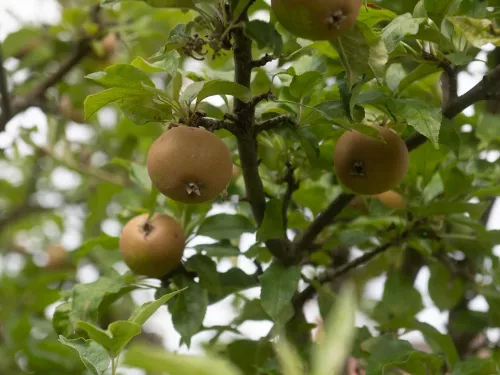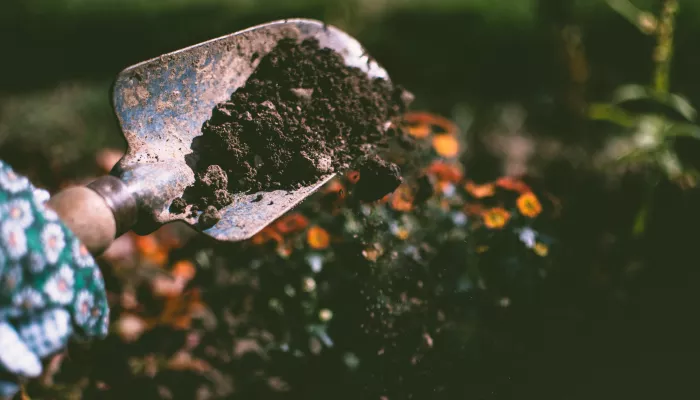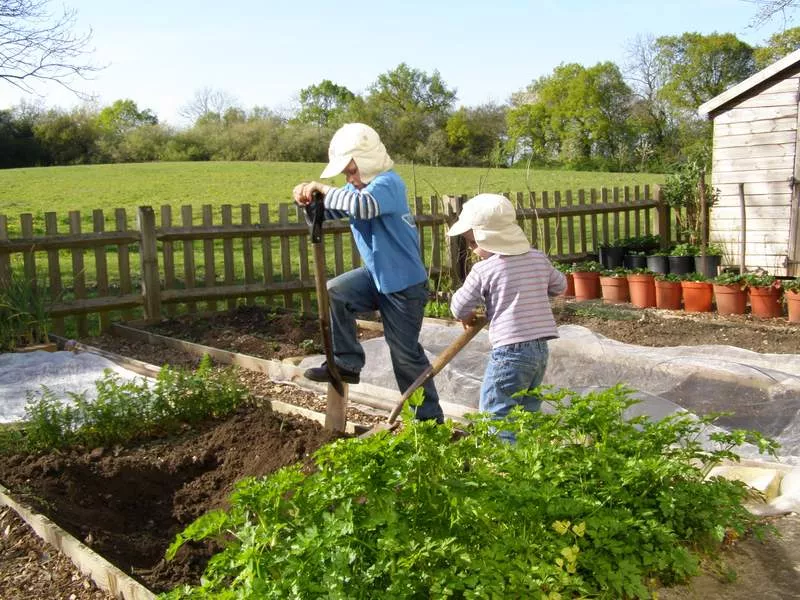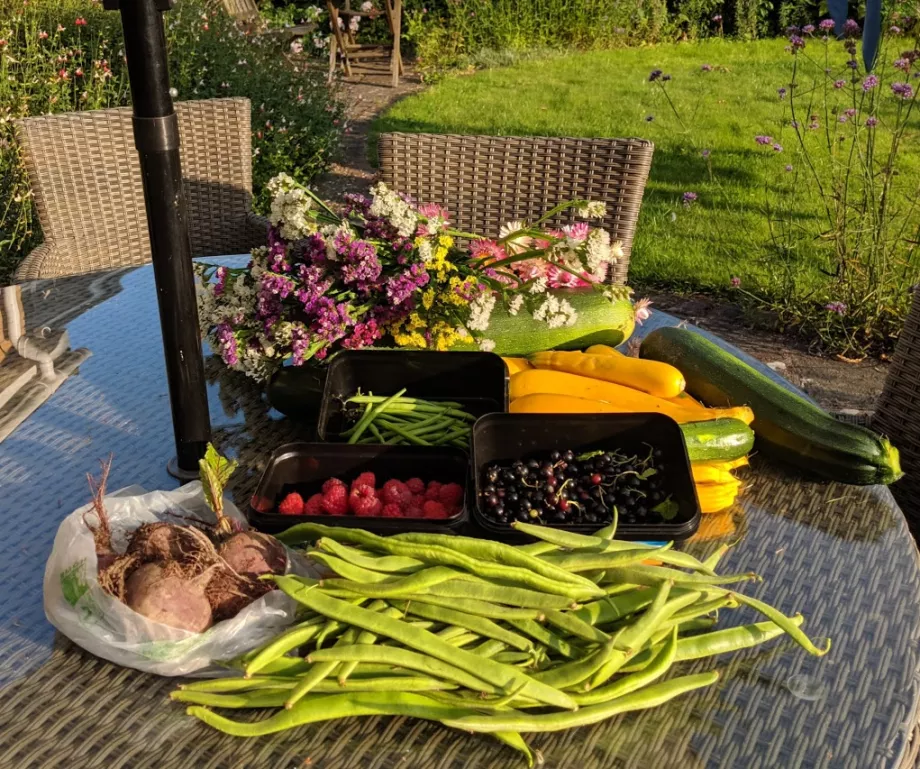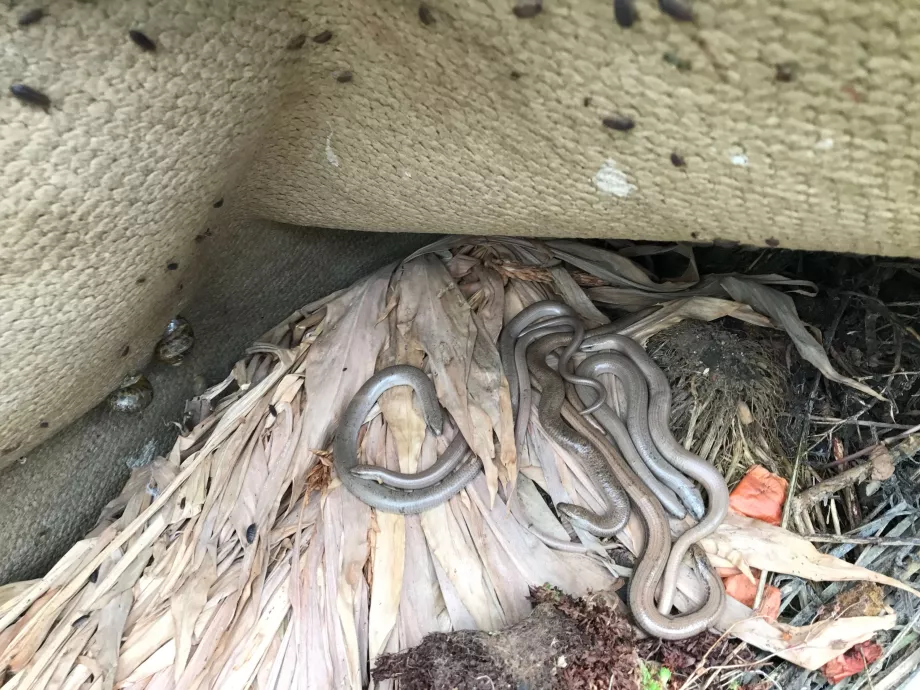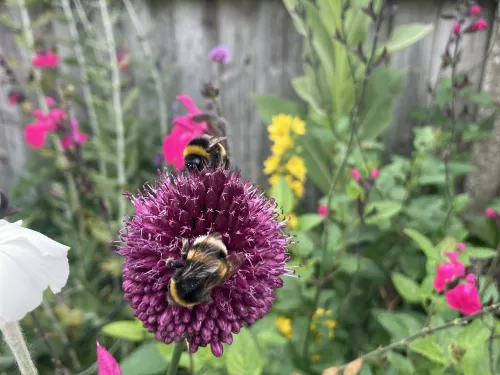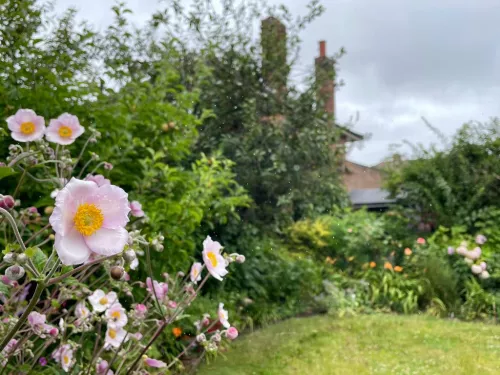As Advisors visit different gardens we share advice from our own experience and from other gardens we have visited. I went to a fabulous garden in Bromley where the gardener was successfully using the Three Sisters system, originally from Central America. Sweet corn plants provide support for climbing beans (whose nitrogenous nodules feed the corn) and squash plants act as ground cover and help prevent evaporation from the soil. This is a very successful form of companion planting, though if you try it you may want to restrict your beans to the outer edges of the plot to enable easy picking.
Sharing ideas like this is one way of encouraging others to persevere with growing their own food. Just think of all the benefits, from cutting down on meat eating (known to be one of the best ways individuals can ‘save the planet’) to reducing your carbon footprint if your food doesn’t have to be transported half-way across the world. And you will know that other environments have not been damaged with pesticides or by using excessive water to produce the food you buy.
Using compost and such growing methods will help to produce healthy plants which will be better able to resist pests. However, many gardeners do worry about managing pests in a wildlife-friendly way. In the next blog, I will give some interesting insights into pests and how they fit into a garden’s ecosystem as well as practical tips on how to deal with them.
Further information
Kent Wildlife Trust’s Wild about Gardens scheme is offering advice by telephone this year. You can enter your garden into the scheme online and our trained Wild about Garden volunteers will do their best to answer your questions.
Useful resources:
Get Wild at Home
Kent Wildlife Trust wildlife gardening
Garden Organic
Royal Horticultural Society advice on organic gardening
